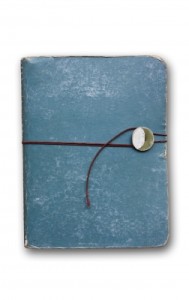(Remember to send me your Mad Quotations! So far, song lyrics are well represented. What else have you got up your sleeves?)

CC image “Statue of Liberty” courtesy of rakkhi on Flickr. Some rights reserved.
I’ve begun to think a lot about Dependence recently.
This is a change of pace. Generally speaking, I haven’t thought much about Dependence as a positive trait. I hadn’t considered it a virtue. It mostly surfaced as a counterpoint to a theme I’ve thought a lot about throughout my life thus far, namely Independence.
I’m not just talking about big geopolitical ideas of Repression versus Freedom for groups and in the political arena. I mean personal self-reliance, a sense of individual freedom, the concept that the individual is capable, and therefore responsible, for arranging the circumstances of their life. But before we get into the thorny issue of responsibility, a comment on the idea pair dependence/autonomy. You can take this pair any of a number of ways: physical dependence, which happens when we cannot care for ourselves physically in some way because we are ill or incapacitated, temporarily or for our lives; financial dependence, in which we rely on someone else to supply the money necessary for us to procure the things we need to survive, like food and shelter; emotional dependence; and so forth. So while there are variable permutations of dependence/independence, the root identifying characteristics are the same across all cases.
Generally, I’ve seen dependence as a negative, a burden. Worse yet, I’ve interpreted my own episodes of dependence as pushy neediness and a sign of personal weakness. I didn’t learn this from my immediate family; somehow I taught myself the Stiff Upper Lip principle. I am the oldest child in my family, and (on one side) the oldest of all my cousins, so I got to be a trailblazer by default. I was rewarded with lots of praise whenever I did something well. Perversely, instead of increasing my confidence, throughout my formative years I developed a sustained fear of failure.
An independent personality
Not every aspect of my life was fraught with such deep psychological angst, but if I was unable to do something or figure something out for myself, I got annoyed (with myself). I had something to learn, and pronto.
I don’t like asking people to do things for me. I don’t like owing people.
I can usually figure out how things need to get done. If I don’t know the answer right away, I probably know where I should go to find it. If you give me a task, I’ll take care of it — and do it well — whether I have to stop at the beginning and sort out a few basic principles or not.
So where does this leave us with our current discussion of Dependence as a virtue?
I’ve gone through a lot of life transitions in the past year and a half. When I embarked on my adventure two thousand miles away across the country, I thought I’d be trailblazing. However, as with any good enterprise, there have been a number of substantial immediate challenges. To my chagrin, I’ve had to accept help, and, more often, ask for it.
I’ve found that Dependence is a great teacher. I’m having to learn — repeatedly, it seems — that it’s OK not to be perfect, and that no one is, overnight, anyway. Also, with each overlapping obstacle, I am learning that there are only certain aspects of my life that I have direct control over or even significant input into. Despite my being fabulous, transition is hard, and it takes time. It takes other people. So I am bumping into my own hubris. I’m learning that the ideal of the Rugged Individualist can be really selfish.
“Collaborator” is a reflexive term: it takes at least two.
Most of all, I’ve had to learn that accepting help can sometimes be a great gift to the giver. Whether it’s time, resources, or an actual physical gift, it’s a blessing to be giving. So I’m learning to accept with grace. Do I still want to be self-reliant? Well, I still would like to know how to fix my car. And I still don’t want to be a secretary. But if I have to learn how to receive now, in order that I can give like crazy later, I’d say that’s a fair trade.
Depend upon it.
====
What about you? Have you discovered any virtues in Dependence?




